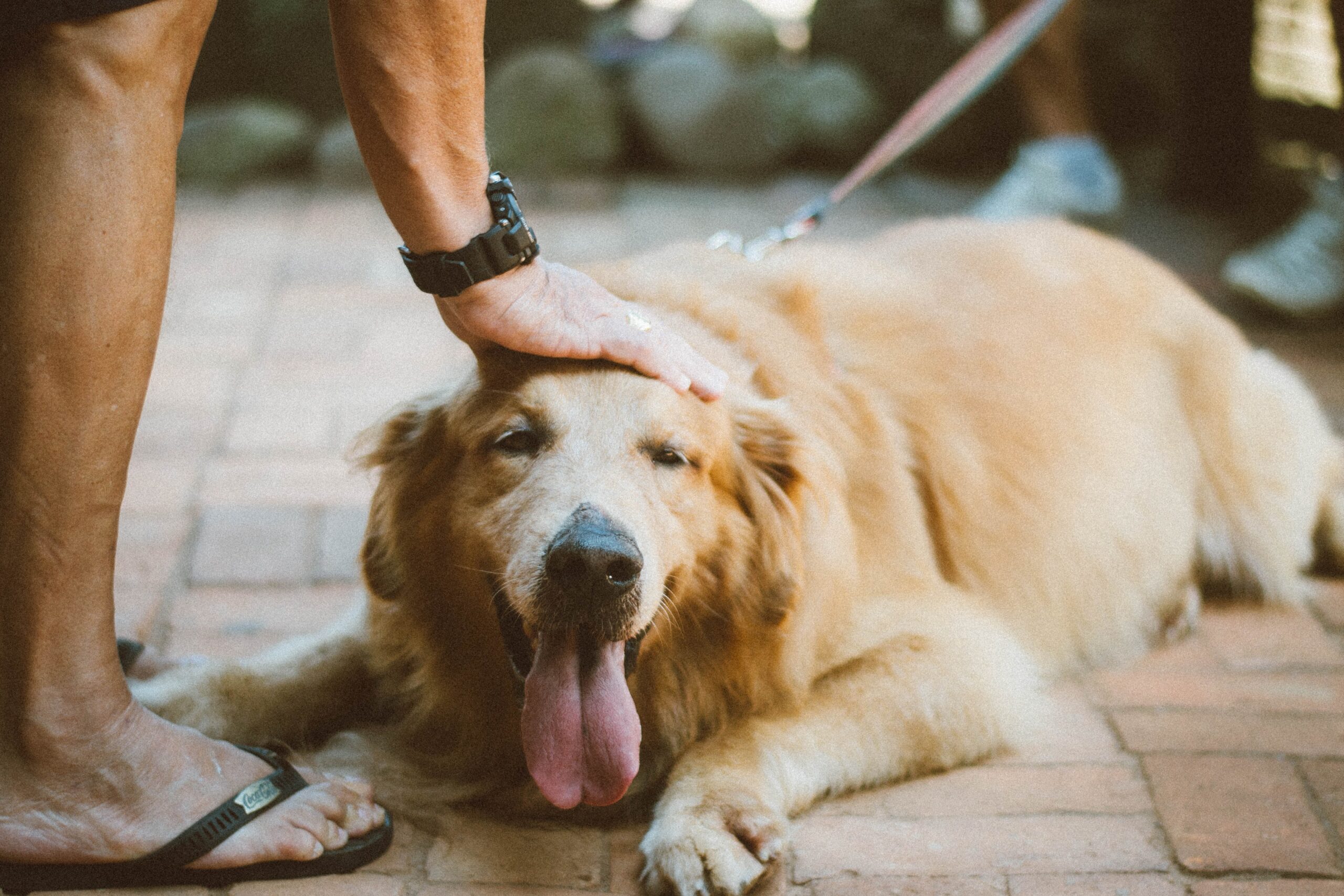How to Provide the Best Care for Your Aging Pet: A Scientific Guide
As pets age, they require special care to maintain their physical and mental health. Like humans, aging can bring a range of health issues for our furry friends, including arthritis, dental disease, and cognitive decline. Taking care of your pet is essential to provide your senior pet with a proper guide to ensure they remain healthy and happy in their golden years.
In this article, we will guide you for taking the best care of your senior pet and give them the best life possible.
Why Taking Care of Your Senior Pet is Important?
As our beloved pets age, they require specialized care and attention to maintain their health and well-being. Caring for a senior pet may involve additional expenses, time, and effort, but the rewards of providing them with the best possible quality of life are immeasurable. Senior pets may be more vulnerable to a range of health issues and require a more gentle and nurturing approach to their care. By taking the time to understand their changing needs and providing them with the care they require, you can help ensure that your senior pet enjoys a happy, comfortable, and fulfilling life.
How to Take Care of Your Senior Pet:
Regular Check-ups with Your Veterinarian
Regular check-ups with your veterinarian are essential for pets of any age, but they are especially important for aging pets. As your pet ages, their immune system may weaken, and they may develop health issues such as arthritis, dental problems, and vision or hearing loss. Regular check-ups will help detect any health problems early on, allowing for proper treatment and management. Your vet may also recommend a senior blood panel to check for any underlying medical conditions.
Appropriate Diet and Nutrition
Your aging pet’s nutritional needs may change as they get older. They may require fewer calories or different nutrients to maintain their health. Consult with your veterinarian to determine the best diet for your pet’s age and health status. They may recommend a special diet that is formulated for senior pets. Providing fresh, clean water is also crucial for your pet’s health.
Essential Nutrients Your Pet Needs: Maintain a Healthy Diet
| Nutrient | Function | Sources | Daily Requirements |
|---|---|---|---|
| Protein | Builds and repairs body tissues, supports immune system | Meat, fish, eggs, dairy, legumes | 25-30% of daily calories |
| Fats | Provides energy, aids absorption of certain vitamins, supports skin and coat health | Meat, fish, oils, dairy | 10-15% of daily calories |
| Carbohydrates | Provides energy, aids digestion | Whole grains, vegetables, fruits | 45-50% of daily calories |
| Fiber | Aids digestion, promotes colon health | Whole grains, vegetables, fruits | 2-4% of daily calories |
| Vitamins (A, D, E, K, B complex, C) | Various functions, including immune support, bone health, vision, and more | Meat, fish, dairy, fruits, vegetables | Varies by vitamin |
| Minerals (Calcium, phosphorus, potassium, sodium, magnesium, iron, zinc) | Various functions, including bone health, muscle function, and more | Meat, fish, dairy, vegetables, grains | Varies by mineral |
Regular Exercise and Mental Stimulation
Regular exercise and mental stimulation are essential for your pet’s physical and mental well-being. However, as your pet ages, they may not be as active as they used to be. Adjust their exercise routine to accommodate their physical abilities. Short walks or gentle playtime can still provide physical and mental stimulation. Mental stimulation can be achieved through interactive toys or puzzle feeders that challenge your pet’s mind.
How Much Exercise is Good for Your Senior Pet on a Regular Basis
As dogs and cats age, their exercise needs may change. It is important to provide them with appropriate exercise to help maintain their physical and mental health. Here are some guidelines for exercising senior pets:
- Consult with a veterinarian: Before starting any exercise program, it is important to consult with a veterinarian to ensure that your senior pet is healthy enough for exercise and to determine any limitations or precautions that should be taken.
- Frequency and duration: Older pets may need shorter and more frequent exercise sessions to avoid overexertion. Aim for at least two to three short exercise sessions (10-15 minutes each) per day, rather than one long session.
- Type of exercise: Low-impact exercises, such as walking or swimming, are generally best for senior pets. Avoid high-impact activities like running, jumping, or intense play. Also, consider your pet’s individual health and activity level. For example, some dogs may benefit from gentle stretching or slow, controlled movements, while others may enjoy playing with puzzle toys or engaging in mental exercises.
- Environment: Senior pets may have difficulty with balance, mobility, and temperature regulation, so it is important to provide a safe and comfortable environment for exercise. Avoid exercising in extreme heat or cold, and provide plenty of water and rest breaks as needed.
- Monitor your pet: Keep an eye on your pet’s energy level and behavior during exercise. If they seem tired or uncomfortable, it may be time to take a break or adjust the exercise routine.
Remember, every pet is different, so it is important to tailor their exercise routine to their individual needs. By providing appropriate exercise and monitoring their health and behavior, you can help your senior pet stay healthy and happy.
Comfortable Living Environment
Your aging pet may have difficulty getting around or may develop mobility issues. Ensure your pet’s living environment is comfortable and easy to navigate.
Comfortable Environments for Your Senior Pet
- Soft and Supportive Bed: As pets age, they may develop joint pain and arthritis, which can make it difficult for them to get comfortable. Provide your senior pet with a soft, supportive bed to help ease their discomfort and promote restful sleep.
- Easy Access to Food and Water: Senior pets may have difficulty bending down to reach their food and water bowls. Consider elevating their bowls or providing them with a raised feeding station to make mealtime more comfortable.
- Warm and Cozy Spot: Older pets may be more sensitive to cold temperatures and require a warm and cozy spot to rest. Provide them with a comfortable and warm bed, blankets, and a heated pad during the colder months.
- Safe and Secure Environment: As pets age, they may develop vision or hearing impairments, making it difficult for them to navigate their environment. Ensure that your home is a safe and secure environment by removing any hazards and providing them with clear pathways to move around.
- Gentle Exercise Areas: While exercise is still important for senior pets, they may require low-impact activities that are gentle on their joints. Create a designated exercise area for your senior pet that is comfortable and easily accessible.
- Easy-to-Access Litter Box: For senior cats, consider providing them with a litter box that has lower sides or is easy to access. This can help prevent accidents and make it more comfortable for them to use the litter box.
Regular Grooming and Dental Care
Regular grooming and dental care are crucial for your pet’s health and comfort. Older pets may require more frequent grooming to keep their coat and skin healthy. Dental care is also essential, as aging pets may develop dental problems. Regular teeth brushing and dental cleanings can help prevent dental issues and keep your pet’s mouth healthy.
Managing Pain and Mobility Issues
As your pet ages, they may develop arthritis or other mobility issues. Your vet may recommend pain management medications or supplements to help manage pain and inflammation. Additionally, physical therapy and massage can help improve your pet’s mobility and comfort.
In conclusion, providing the best care for your aging pet requires adjustments to their routine and environment. Regular check-ups with your veterinarian, appropriate diet and nutrition, regular exercise and mental stimulation, a comfortable living environment, regular grooming and dental care, and managing pain and mobility issues can help ensure your pet’s health and happiness in their golden years. By following these scientific guidelines, you can give your aging pet the best care possible. Remember, your pet has given you a lifetime of love and companionship, so it’s important to give back by providing them with the care they deserve.
You May Be Interested In……
A Comprehensive Guide for Selecting Nutritious Pet Food


